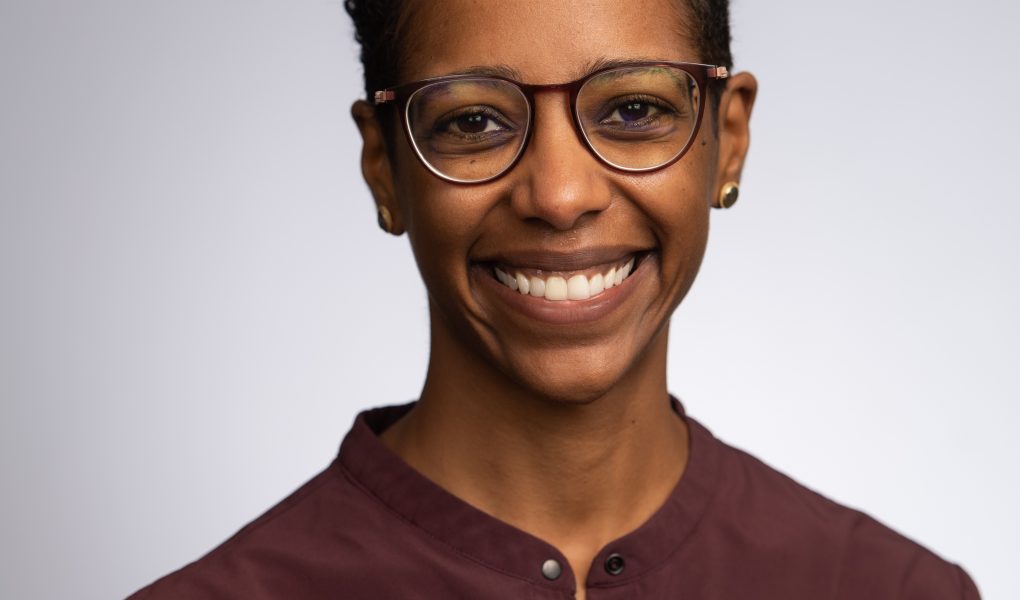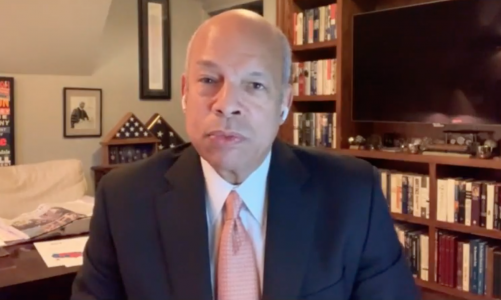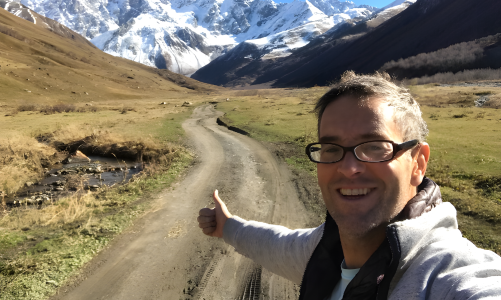
Mai Hassan, Ph.D. is an Associate Professor of Political Science at the University of Michigan. Her research centers on questions of the state, autocracy, and regime change, particularly in Africa. Her 2020 book, Regime Threats and State Solutions: Bureaucratic Loyalty and Embeddedness in Kenya, discusses how bureaucrats are deployed in service of leaders’ goals of social control. This book was selected as a Best Book of 2020 by Foreign Affairs, won the American Political Science Association’s 2021 Robert A. Dahl Award which honors works of the highest quality pertaining to democracy, and was the recipient of the African Studies Association 2021 Bethwell A. Ogot Award for research on East Africa.
Marwan Ali: What tenets of Sudanese culture do you try to carry with you, and how do you think they’ve helped you in your career thus far?
I’d like to say stubbornness.
We’re such a stubborn people, but I think that stubbornness is a really important trait to persevere in academia or any other demanding field.
I don’t know if this is a Sudanese-ism as much as a mantra that I personally have, but I always tell myself – ‘well, if other people can do it, then so can I’. That’s truly been my mantra throughout so much of my career. The first time I heard about another grad student publishing their research, I was initially worried that I would never be able to figure out the ins and outs of the publishing process. But then I went back to that mantra; other people have published their research, so why can’t I? If other people have written dissertations, so can I; if other people have written books, so can I. I wouldn’t say that this mantra is necessarily something Sudanese, except that the stubbornness, the hard-headedness of being Sudanese definitely plays into it.
That’s definitely something we’ve got within Sudanese culture; that refusal to accept defeat because you know that victory’s within reach.
That’s good. I like that.
I believe that your body of work would be especially inspiring to young Sudanese women, who had a huge influence over the Sudanese revolution. You look at the instrumental role they played, you look at the global phenomenon of Kandaka; seeing that through the lens of a Sudanese woman, how did that make you feel?
That made me so proud, but it was also really humbling. As a scholar of democracy, and someone who thinks that human rights and democratization are normative goods, I write about these things a lot. But here are these women, who are in such subjugated conditions, and they are actively risking their lives to see these ideals through. I lecture about democracy, but what’s the worst that’s going to happen to me? A heckler in class doesn’t affect me in the same way that a bullet might. Thinking about these women through this lens made me even more proud of what they have accomplished.
And, overall, their activation and activism have been one of the few good things that came out of all of the oppression of the Bashir regime1, and all the repressiveness of Sudanese society that, for generations, put women in tiny little spaces; we saw this huge outburst of female political activism and I personally directly related it to how repressed they were in their daily lives. It’s not that this activation was worth being subjugated for decades, but it is cathartic to see something good come out of that.
The works of the Sudanese revolution were effectively undone last October, with the military coup. In your article with Ahmed Kodouda, ‘Sudan’s Uprising: The Fall of a Dictator’, you predicted that the military would take power back from the civilian-led government if the economy didn’t improve, with the justification of proven governmental failure. Although there was a certain element of shock when it happened, would you say you were surprised by the military coup?
I was very surprised by it as a Sudanese person; how could this small handful of military leaders just wave away a whole revolution? It was shocking hearing the statements of these people that purport to represent the Sudanese people and yet are clearly not in touch with them, with us.
But from a political science point of view, I didn’t find it as surprising as I did as a Sudanese person. There’s a lot of research about the conditions under which we might think that popular uprisings actually lead to real democratization, and a lot of that work thinks about the cohesiveness of the opposition coalition. It’s very easy to rally people behind you under a broad banner like ‘Freedom, Peace, and Justice’2 – that sounds great, right?
But research suggests that, if you want action that actually leads to really conducive policy and moves the country forward after a successful uprising, you need the movement’s leaders to be committed to each other and cohesive, to actually trust each other. What we saw in the Sudanese case was what’s called a negative coalition, where people came together because they didn’t like Bashir. They didn’t come together because they had a vision for what a post-Bashir Sudan could look like, nor one that they all shared.
So when it came down to governing during the transition period, after Bashir had been ejected, all of these different civilian groups were using their time and power within the transition to try and one-up each other. And that obviously led to gridlock, which then created this governing vacuum that the armed forces were able to take advantage of.
So from a political science standpoint, the counter-revolutionary outcome was still a bit surprising because a lot of popular coalitions do succeed, but the way in which this popular uprising led to a counter-revolutionary coup was very much in-line with other examples.
In your paper on ‘Regional Governance in Divided Societies’, you postulated that one cause of stalled democratic transitions is ‘the persistence of political institutions created by autocratic predecessors’. Do you think that the presence of former members of al-Bashir’s regime, such as Hemedti, was detrimental to the progress of the civilian government?
One hundred percent, especially since one of their core themes was justice. If you want justice, and you have those who carried out massacres in the governing coalition, and they’re mandating that the perpetrators (i.e., themselves) get exonerated for their past actions, well, there’s going to be a lot of tension.
Your op-ed in the NYT seemed to contain a tinge of optimism – you pointed at successful uprisings in Burkina Faso and Tunisia as proof of hope in Sudan. Would you say that that hope is still there, even with developments since then like Prime Minister Hamdok’s resignation and the brutality of the regime?
I think that the moment in which the counter-revolutionary coup could have been reversed was confined to the immediate post-coup period. Like I said, military leaders instigating a counter-revolutionary coup and trying to undo the revolution was like a slap in the face. Had there been more popular resentment, had more people gone out onto the streets, well, that could have created splits in the military council or placed more international pressure against the coup leaders. But that didn’t happen in a sufficient and sustained way and now the momentum is dying down.
That said, it’s really great that the lijan3 are continuing daily protests against the counter-revolution. They’re trying to build a movement of grassroots democracy that is more robust than autocracy. In 2018-19, the lijan and the uprising more generally had a very broad set of goals – Freedom, Peace, Justice. They really just wanted Bashir out. But so did a lot of people and they could mobilize lots of people out onto the street without as much groundwork.
Now the lijan are saying ‘Okay, we want anyone who has any links to the former regime at all out’. They are demanding a lot more, and they have this unified vision about where they want Sudan to go. This is important for opposition cohesion, but lots of regular people don’t buy into that vision yet. It’s really radical (not in a bad way), and really transformative, and many people aren’t willing to get behind that kind of change right now, so the amount of people who are actually willing to risk their lives for the movement is just getting smaller and smaller. Unfortunately, I just think it’s going to take a lot of time to remobilize society in this new way, with these new goals. And from what I’ve been reading and seeing, these protests are much smaller than what we saw back in April 2019.
What might flip the situation and help the protestors in the short-run is the economy. A lot of people have been pointing to the sanctions that have been put on Sudan – the stopping of aid, foreign funds – in response to the counter-revolutionary coup and it’s really pinching the regime.
There’s obviously been increased unrest in Sudan over the past few months, but not just with regards to the protests. Continued violence in Darfur, the Port Sudan blockade in December; do you think that there is the potential for a civil war in Sudan?
This is a question that a lot of analysts keep referencing as a possibility.
You know how I spoke about the opposition’s negative coalition, and how all that was keeping them together was ‘well, we don’t want Bashir’? Well, we can think about Hemedti and the RSF, the military, and the various rebel groups that are now in power as a negative coalition of their own. They’re all sticking together despite their very different interests because they like power. They’re willing to work together so long as it means that they can crush the civilian movement.
A logical next question, then, is, well, what happens if and when they actually do stop the civilian movement? What happens if and when the protests stop? Does that mean the negative military coalition is going to split? And unlike a splitting of a negative civilian coalition, these are men with guns – so you worry about how all of these different factions might use their coercive capacities to try to take over the state for their narrow group, and in the process, create a civil war for the rest of the country. So that’s definitely a possibility.
Another thing that we should think about is – what’s the cleavage along which the ruling military coalition would split? How might different armed actors unite? Could we imagine a seven-way war? No, I don’t think this is like the DRC, so the question then becomes ‘is there one security apparatus or one rebel group that is substantially large enough to take on the rest of them?’ And I think a lot of people would probably look to the RSF under Hemedti. But I can’t say whether or not the RSF is already strong enough to get all of the other armed actors to just fall in line behind them without a protracted conflict.
A lot of your work focuses on decentralization and its implementation in sub-Saharan Africa. Sudan’s attempts at federalism thus far have been, in your words, ‘little more than a ruse’, but do you think genuine attempts at decentralizing and installing locally embedded leaders within the country would lead to less friction?
I don’t want to say that decentralization always has the potential to improve politics ‘if it’s done right’, because I think any system of laws that is put on the books can be institutionally subverted to meet narrow political interests. The law is only as good as the intentions of those wielding it.
But decentralization can help meet other goals.
I don’t know how well any system might be able to overcome narrow political interests, but on the flip side, decentralization can better align different identities with territory, and give marginalized peoples political power and a political voice. That’s something that I think is especially necessary in Sudan, given years upon years of subjugation of different ethnic groups. And if decentralization or devolution of power actually gives groups that didn’t have a voice before some say in the government, even if it doesn’t lead to anything else, we might end up still saying that this is still a net positive, in that civilians now feel like their government is more representative of them. So it could go both ways, depending on what the goals of that decentralization are.
Much of this work centers around Kenyan politics; would you say there are any successes in Kenya that Sudan can point to or any pitfalls it should try to avoid regarding its implementation of decentralization?
Kenya has tried many, many different types of decentralization throughout its history, and one of the times I’m most familiar with is the one implemented during the 1990s until the early 2000s; there was a wave of what’s called district creation or administrative unit proliferation, where the number of districts in Kenya radically increased. A lot of my research shows that this was done, in light of the re-introduction of multi-party elections at the beginning of this period, in an attempt by presidents to carve out ethnic homelands for different marginalized ethnic groups.
As I was saying before, decentralization can be a really good thing. Say there’s an ethnic group that comprises 2% of the population, who have always been in the shadow of a larger ethnic group in their district. If the smaller group gets a new district, and now sees that one of the country’s districts represents them, they feel really grateful and are liable to support the president. So when successive presidents created these new districts, this was so that this new district would lend its support to the president in the run-up to elections. We saw a similar administrative unit proliferation in Sudan, but not to the scale and extent of Kenya; I remember talking with census officials about how the number of Mahaliyat (local areas) and Wilayat (states) in Sudan went up with the creation of, for example, Central Darfur and East Darfur.
But the pitfall with unit proliferation for ethnic groups is how small of an ethnic group will demand a new unit? That is, what happens when you make a new district for the Halfawis? If they have a district now, then the Sikots, who may have aligned themselves with the Halfawis, may think, ‘If the government is creating new districts, we should get one too’. And so what I saw in Kenya is that the ethnic groups demanding new units became smaller and smaller. That is, after an ethnic group received a new district, sub-ethnic groups within that same district would now demand their own district claiming that they are fundamentally different from, and marginalized by, the larger sub-group when just a few years past they jointly advocated for the initial new district.
The salience of identity depends in large part on the political unit that you’re thinking about, so if we get smaller and smaller administrative units, then the relevant ethnic group that people look to is probably going to be different. You can’t have ethnic competition if a district is all Halfawis, but instead, competition might cleave on clan lines instead.
More recently, Kenya has devolved its state structure. Although devolution has only been around for about a decade, some very good things have come out of it already; there’s still ethnic violence around elections, but nowhere near the level that we had seen beforehand. The flip side, though, is that this system of government has been really expensive, and it’s created multiple centers of power such that many don’t know who to ask for certain resources or government services. Should those goods and services still be provided by the central government, or are those functions of the devolved county government now? That question has made accountability a bit harder in Kenya.
1Omar Al-Bashir was the dictator overthrown in the 2018-19 Sudanese Uprising.
2‘Freedom, Peace, and Justice’ was the main slogan used by protestors during the 2018-19 Sudanese Uprising.
3Lijan: Neighborhood Resistance Committees that mobilized resistance during the 2018-19 uprising, and have continued to pressure the country’s leaders since the transition.




